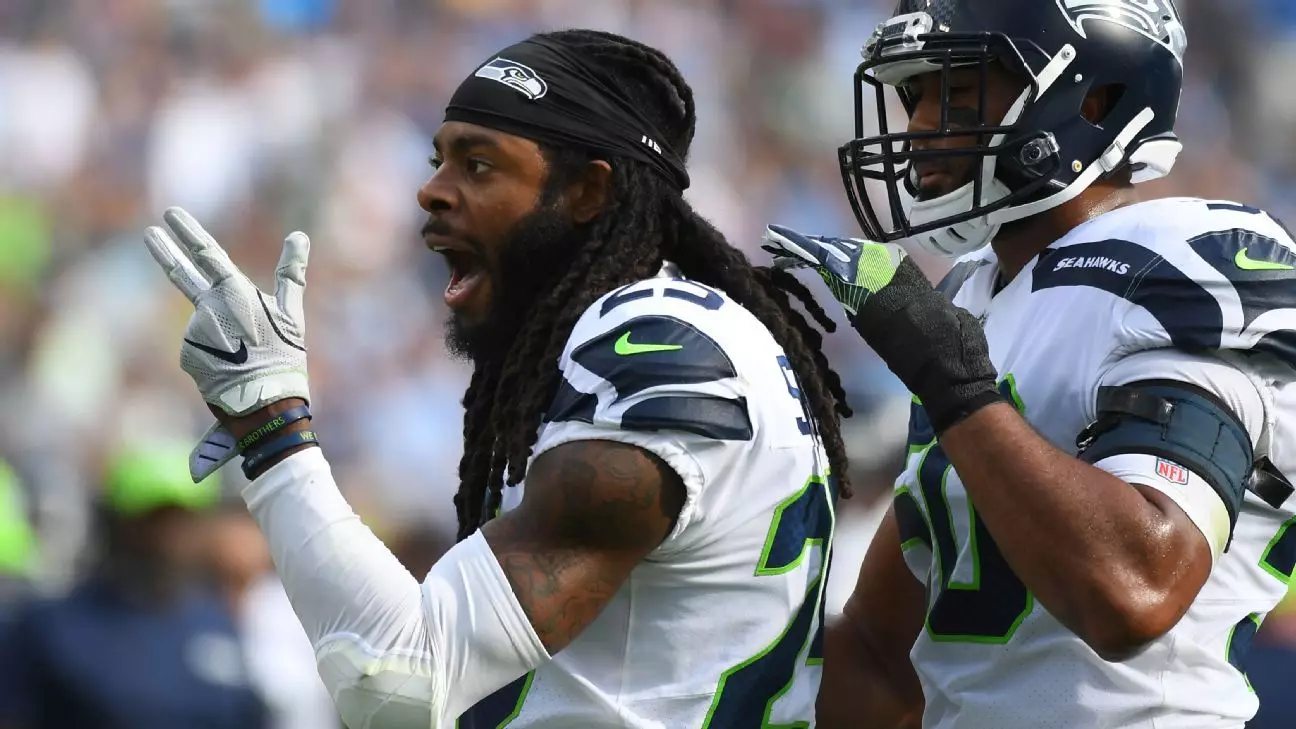In recent months, high-profile burglaries targeting professional athletes have surged, highlighting a chilling trend that poses significant challenges for public safety. The latest incident involves 21-year-old Earl Henderson Riley IV, who has recently faced multiple charges for allegedly orchestrating a string of burglaries at the residences of both current and former sports stars in Seattle. This wave of crime not only threatens the personal security of those involved but also exposes broader issues concerning the safety of celebrity figures, including the psychological impact of such invasions on their families.
The Fallout of Celebrity Status
Celebrities are often perceived as living in the lap of luxury, but this often comes with a hidden burden: a heightened risk of crime. The recent cases, which include notable figures such as Mariners pitcher Luis Castillo, center fielder Julio Rodriguez, and former Seahawks cornerback Richard Sherman, serve as a stark reminder of how fame can attract malicious attention. Riley is accused of ransacking homes while their occupants were away, stealing items valued at hundreds of thousands of dollars. This not only disrupts their lives but leaves them with a lingering sense of vulnerability in what should ultimately be their safe haven—their home.
While many may assume that the wealth of professional athletes would provide them with adequate security measures, the reality is that these individuals can’t be on high alert 24/7. Often they are away from home, either attending games or training sessions, making them prime targets for criminals who are adept at exploiting such situations. The stealing of over $6,000 in luxury handbags from Castillo’s home and more than $194,000 worth of jewelry and purses from Rodriguez is not merely a theft; it’s an invasion of personal space that rattles the very foundation of their lives.
Law Enforcement’s Challenges
The legal proceedings against Riley underscore the complexities involved in apprehending those responsible for these high-profile crimes. The investigation, reportedly spanning several months, shows a concerted effort among various police jurisdictions to clamp down on these crimes. Senior Deputy Prosecuting Attorney Gary Ernsdorff emphasized the ongoing efforts to identify any accomplices linked to Riley’s criminal activities. This speaks volumes about the systematic nature of these burglaries and the organized groups behind them.
It’s noteworthy that the FBI has recognized this alarming trend, issuing warnings to various sports leagues about the increasing sophistication of organized crime targeting professional athletes. The NFL and NBA have even taken preventive measures, issuing security alerts to their players following similar incidents affecting stars like Patrick Mahomes and Travis Kelce. The fact that these leagues have acknowledged the issue indicates that it has escalated beyond isolated incidents; it is becoming a pervasive social concern that could have lasting repercussions.
The Psychological Toll
While the financial losses are significant, the psychological effects of such violations can be even more profound. Athletes, often showcased as role models and symbols of success, must now deal with the emotional fallout from having their sanctuaries invaded. The disruption of routine, concerns about family safety, and lingering anxiety can overshadow their professional accomplishments, affecting how they perform on the field.
Furthermore, the stigma attached to being a “victim” complicates the narrative. Many athletes might feel compelled to downplay their experience or fail to express their vulnerabilities due to societal expectations. Such pressures can lead to mental health issues, and the industry must address this stigma to facilitate a more supportive atmosphere for its stars.
The Road Ahead
As the discussion around athlete safety grows, the responsibility lies not just with individual players or sports organizations but also with communities and law enforcement agencies. Creating an environment where sports figures can feel secure in their homes requires a multifaceted approach—from improved security practices to community awareness and prevention strategies. The recent uptick in burglaries serves as a wake-up call, urging a collective reevaluation of how we view celebrity culture and safety in our society. The rising frequency of such crimes should challenge us to think critically about how to protect those who entertain and inspire us, making their off-field lives as precious as the feats they accomplish in sports.


Leave a Reply